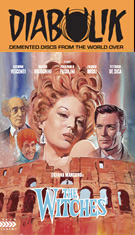
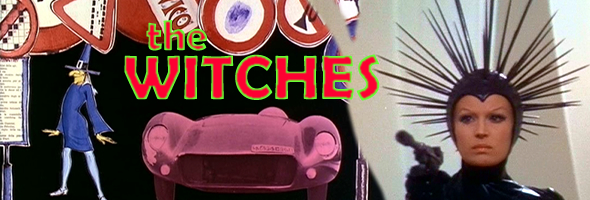
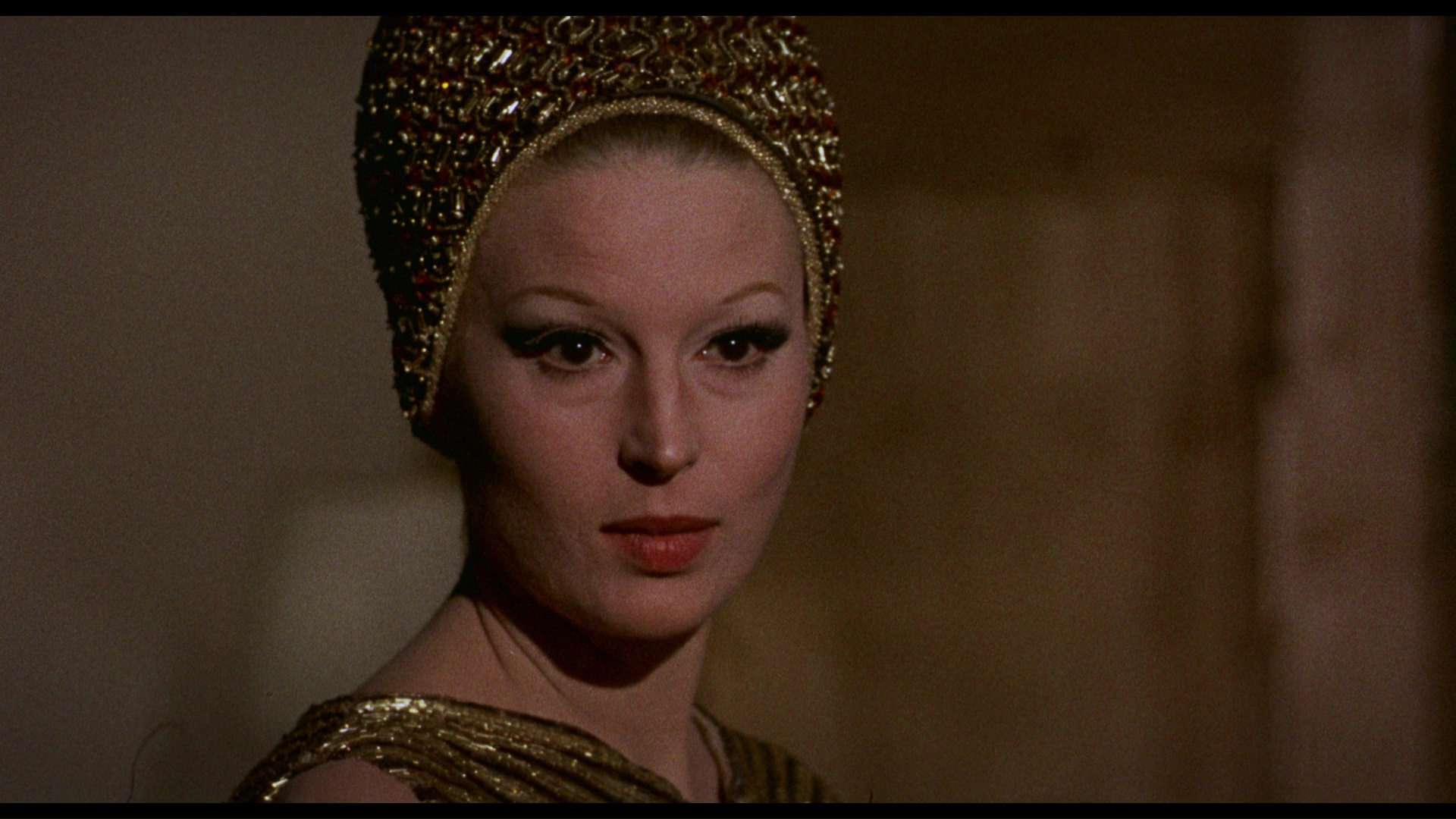 European rage for
European rage for 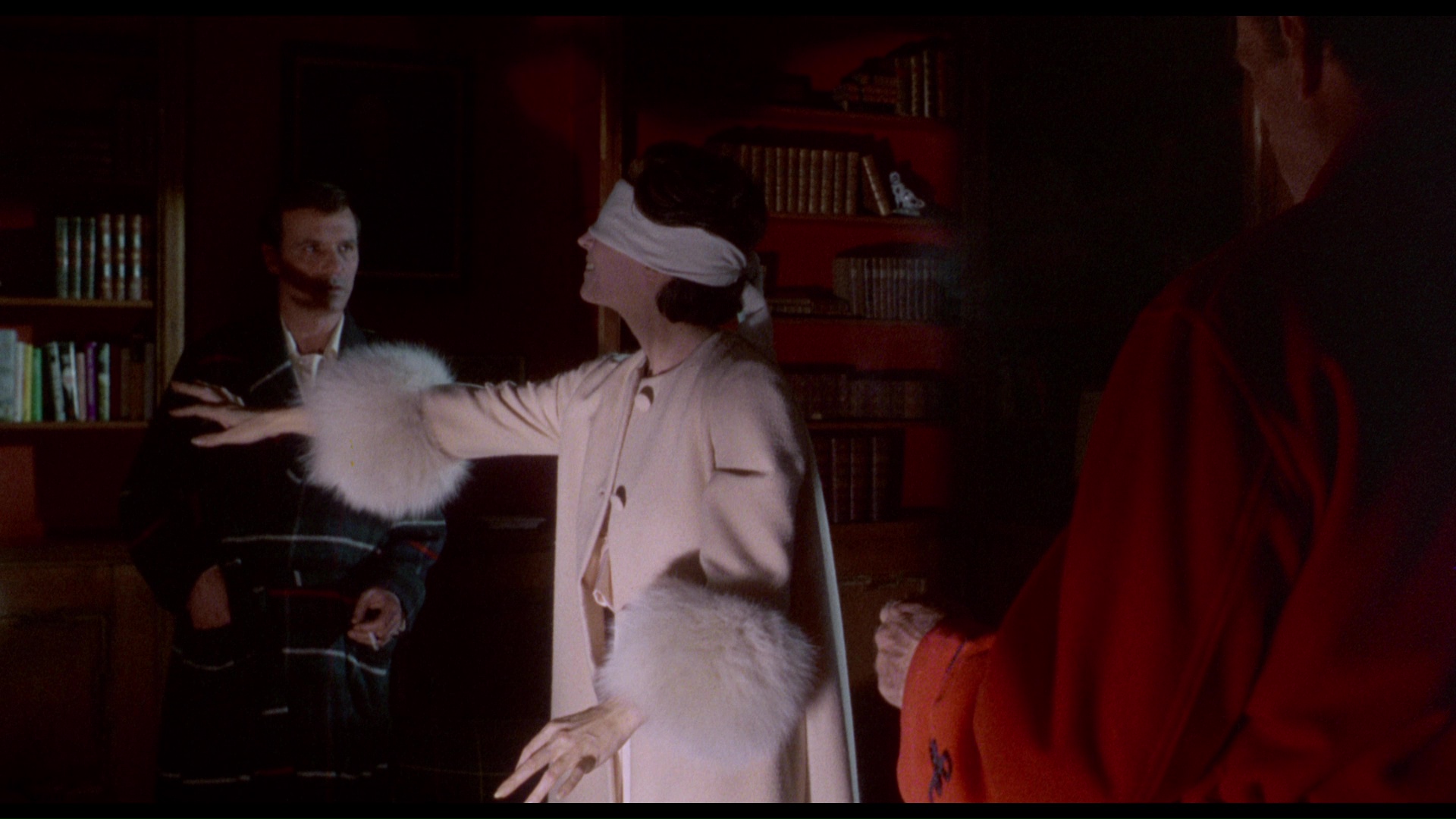 anthology films was one of the oddest trends of 1960s cinema, with high-profile directors rubbing shoulders with relative unknowns in story collections revolving around some sort of common theme. Whether it be the glamorous charms of Boccaccio '70 or the arty chills of Spirits of the Dead, audiences ate up the spectacle of filmmakers indulging in wild little short films with a host of recognizable guest actors. One of the oddest and latest arrivals to this trend is The Witches (or Le streghe), whose title has essentially no bearing at all on the movie itself. The whole thing is essentially a vanity project with a quintet of stories designed to show off the range of actress Silvana Mangano, the Miss Italia contest winner who went on to marry Dino De Laurentiis in 1949 and became something of a star in the acclaimed film Bitter Rice. Although The Witches received very little play as a pick-up from United Artists and was often dumped at the bottom of double and triple bills, it became an instant curiosity piece for the presence of Clint Eastwood at the tail end of his spaghetti western career with Sergio Leone and remains the strangest, least-seen item in his filmography. As for Mangano, the film didn't really do much for her career at first but did lead to substantial future collaborations with two of its directors, Pier Paolo Pasolini (whom she rejoined for
anthology films was one of the oddest trends of 1960s cinema, with high-profile directors rubbing shoulders with relative unknowns in story collections revolving around some sort of common theme. Whether it be the glamorous charms of Boccaccio '70 or the arty chills of Spirits of the Dead, audiences ate up the spectacle of filmmakers indulging in wild little short films with a host of recognizable guest actors. One of the oddest and latest arrivals to this trend is The Witches (or Le streghe), whose title has essentially no bearing at all on the movie itself. The whole thing is essentially a vanity project with a quintet of stories designed to show off the range of actress Silvana Mangano, the Miss Italia contest winner who went on to marry Dino De Laurentiis in 1949 and became something of a star in the acclaimed film Bitter Rice. Although The Witches received very little play as a pick-up from United Artists and was often dumped at the bottom of double and triple bills, it became an instant curiosity piece for the presence of Clint Eastwood at the tail end of his spaghetti western career with Sergio Leone and remains the strangest, least-seen item in his filmography. As for Mangano, the film didn't really do much for her career at first but did lead to substantial future collaborations with two of its directors, Pier Paolo Pasolini (whom she rejoined for 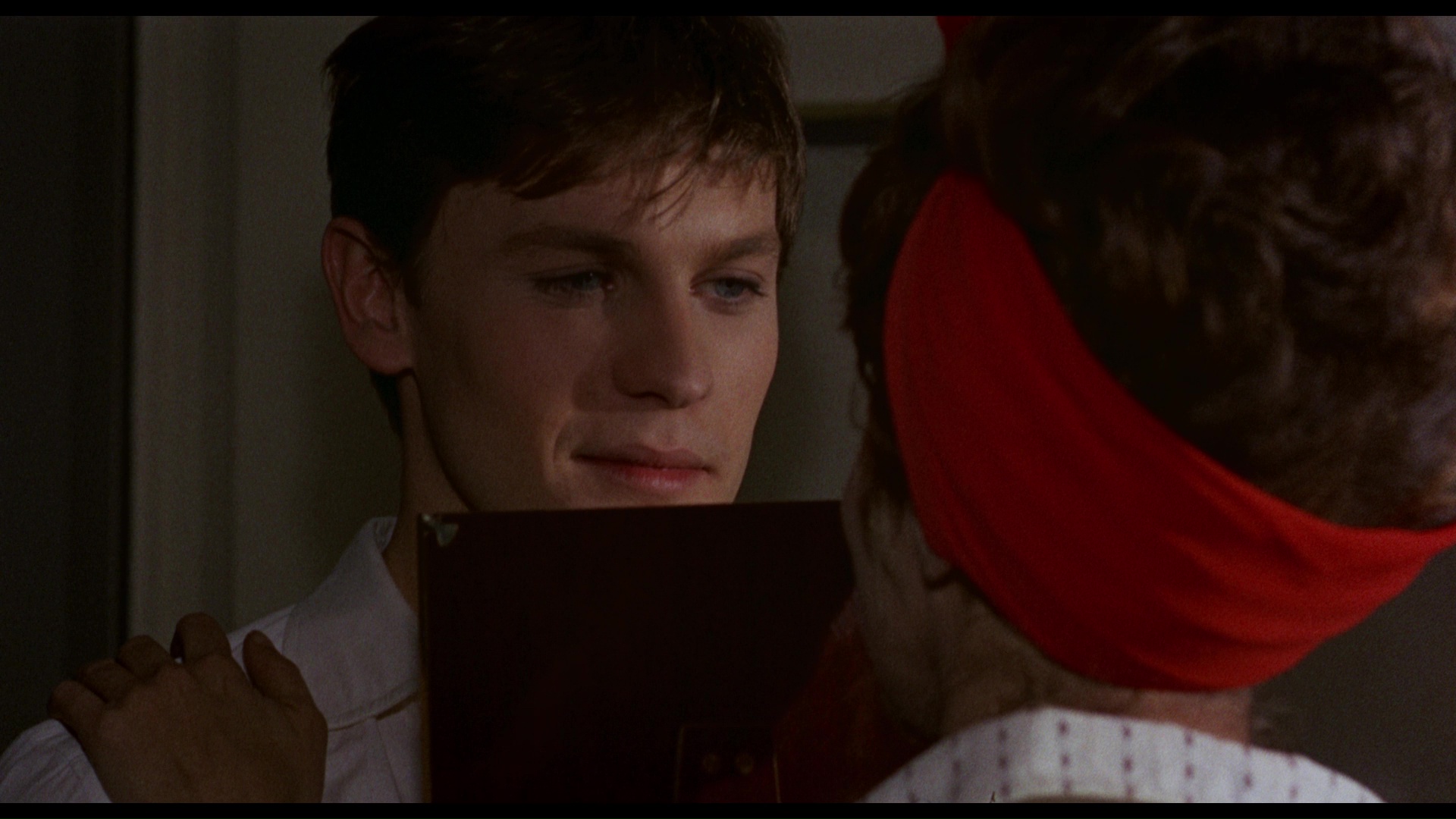 Oedipus Rex, Teorema, and The Decameron) and Luchino Visconti (with whom she also worked on Death in Venice, Ludwig, and Conversation Piece). She semi-retired in the 1980s but did pop up in David Lynch's Dune and Nikita Mikhalov's Dark Eyes.
Oedipus Rex, Teorema, and The Decameron) and Luchino Visconti (with whom she also worked on Death in Venice, Ludwig, and Conversation Piece). She semi-retired in the 1980s but did pop up in David Lynch's Dune and Nikita Mikhalov's Dark Eyes.

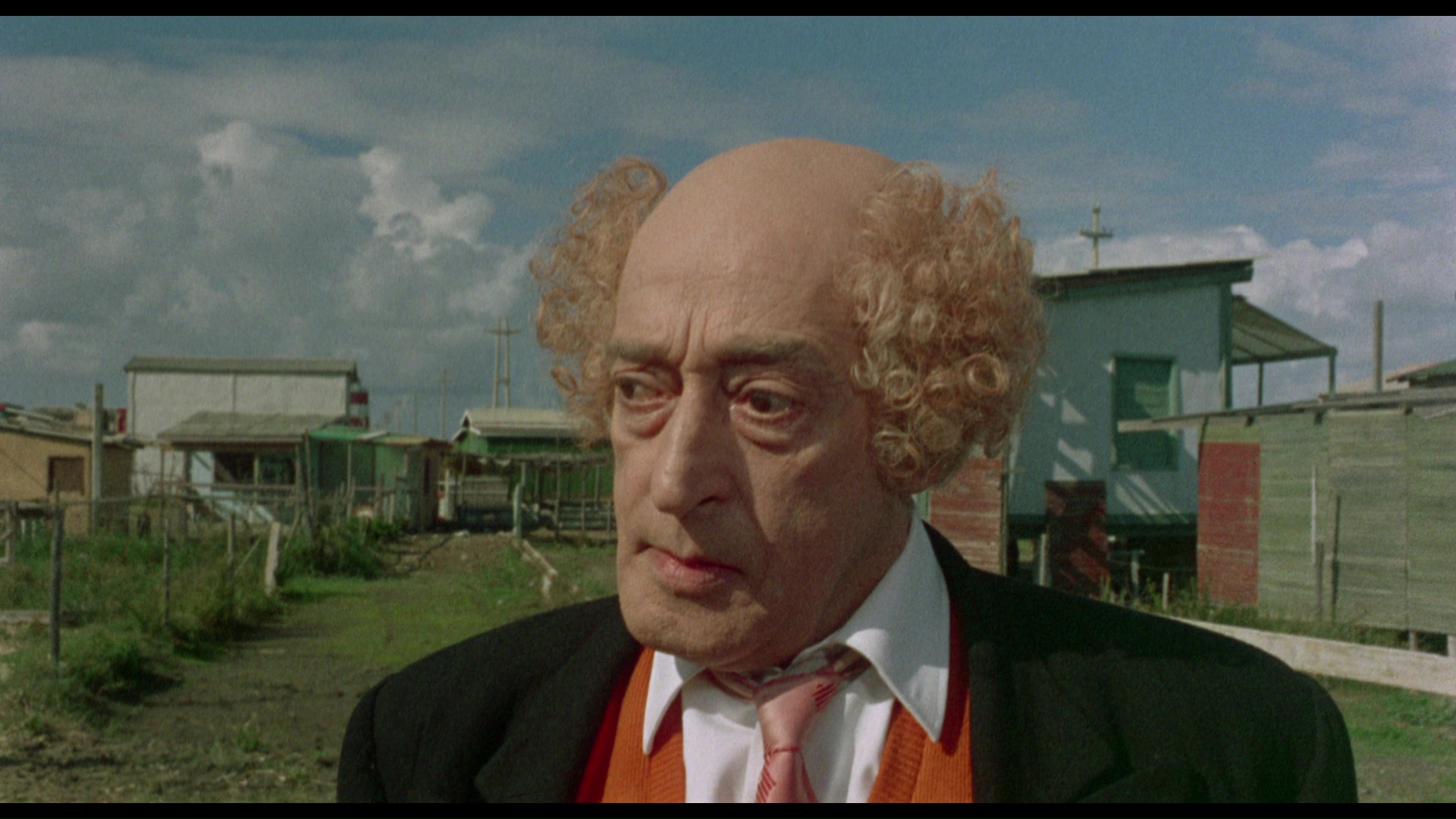 but is quite entertaining along the way. As usual with the director, it looks fantastic thanks to the sumptuous photography by Giuseppe Rotunno (The Leopard) and exerts an eerie, icy allure that's hard to shake if you're in the right frame of mind.
but is quite entertaining along the way. As usual with the director, it looks fantastic thanks to the sumptuous photography by Giuseppe Rotunno (The Leopard) and exerts an eerie, icy allure that's hard to shake if you're in the right frame of mind.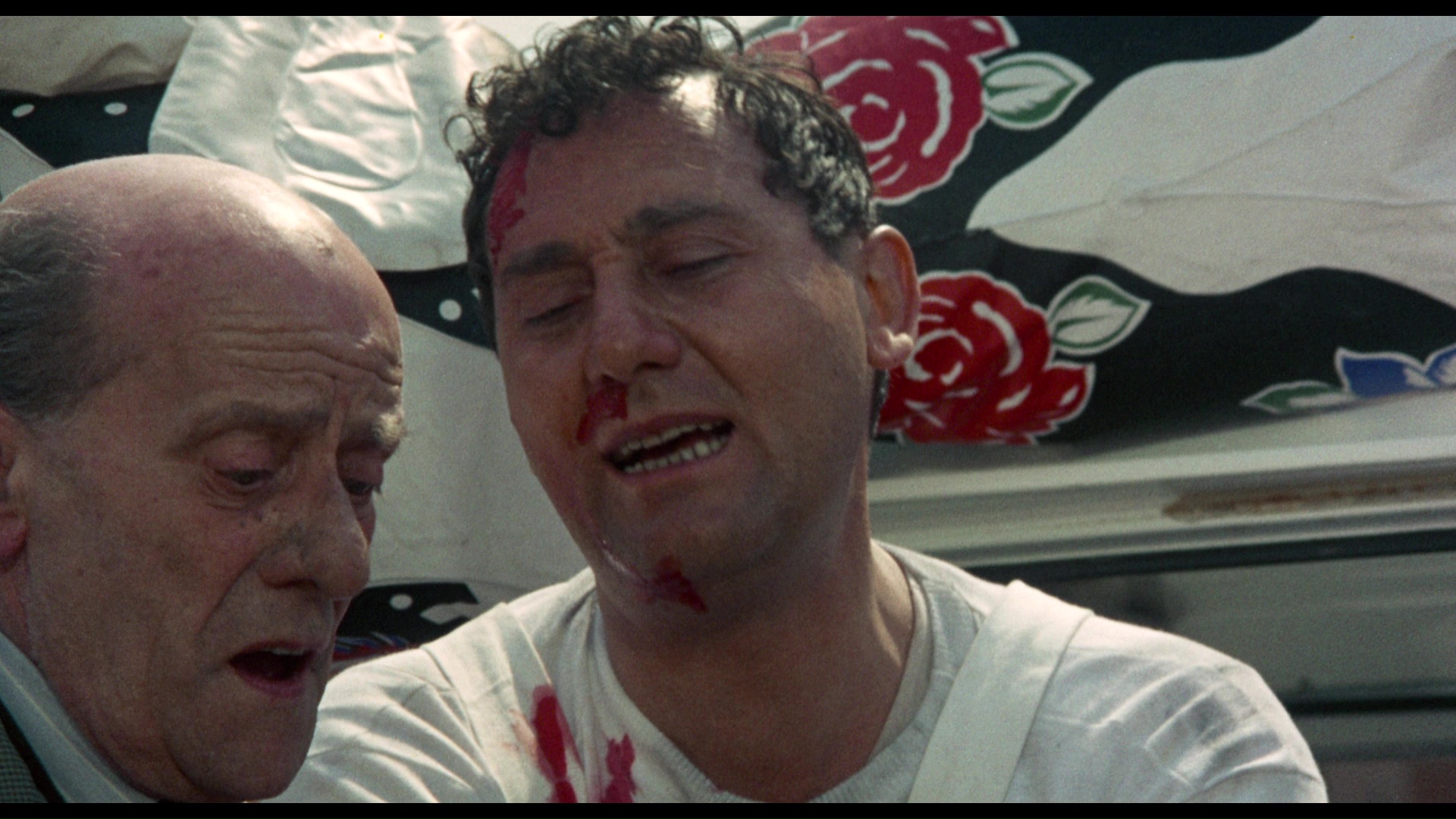 Mauro Bolognini (who at least went on to direct the underrated The Inheritance in 1976). It's basically a noisy, two-character comedy piece for Mangano and Italian comedy favorite Alberto Sordi, who plays a man injured in a car accident she's trying not very effectively to transport to a hospital. At least it's really short. Then we're back to more interesting territory with "The Earth Seen from the Moon," a truly wacko "fairy tale" from Pasolini in which aging widower Mr. Miao (comedian Toto, sporting a bizarre hairdo) and his idiot son, Baciu (Pasolini regular Davoli, sporting an even more bizarre orange pompadour), decide it's time for the patriarch to remarry -- but only to a woman they both agree is the right choice. Fortunately they run into Absurdity (Mangano), a green-haired deaf mute who becomes the ideal wife and mother in their very humble abode. However, a ridiculous twist and its freakish supernatural aftermath put their relationship to the ultimate test. Though it's rather nonsensical and kind of empty-headed, this is a quirky precursor to Pasolini's more accomplished Trilogy of Life anthology
Mauro Bolognini (who at least went on to direct the underrated The Inheritance in 1976). It's basically a noisy, two-character comedy piece for Mangano and Italian comedy favorite Alberto Sordi, who plays a man injured in a car accident she's trying not very effectively to transport to a hospital. At least it's really short. Then we're back to more interesting territory with "The Earth Seen from the Moon," a truly wacko "fairy tale" from Pasolini in which aging widower Mr. Miao (comedian Toto, sporting a bizarre hairdo) and his idiot son, Baciu (Pasolini regular Davoli, sporting an even more bizarre orange pompadour), decide it's time for the patriarch to remarry -- but only to a woman they both agree is the right choice. Fortunately they run into Absurdity (Mangano), a green-haired deaf mute who becomes the ideal wife and mother in their very humble abode. However, a ridiculous twist and its freakish supernatural aftermath put their relationship to the ultimate test. Though it's rather nonsensical and kind of empty-headed, this is a quirky precursor to Pasolini's more accomplished Trilogy of Life anthology
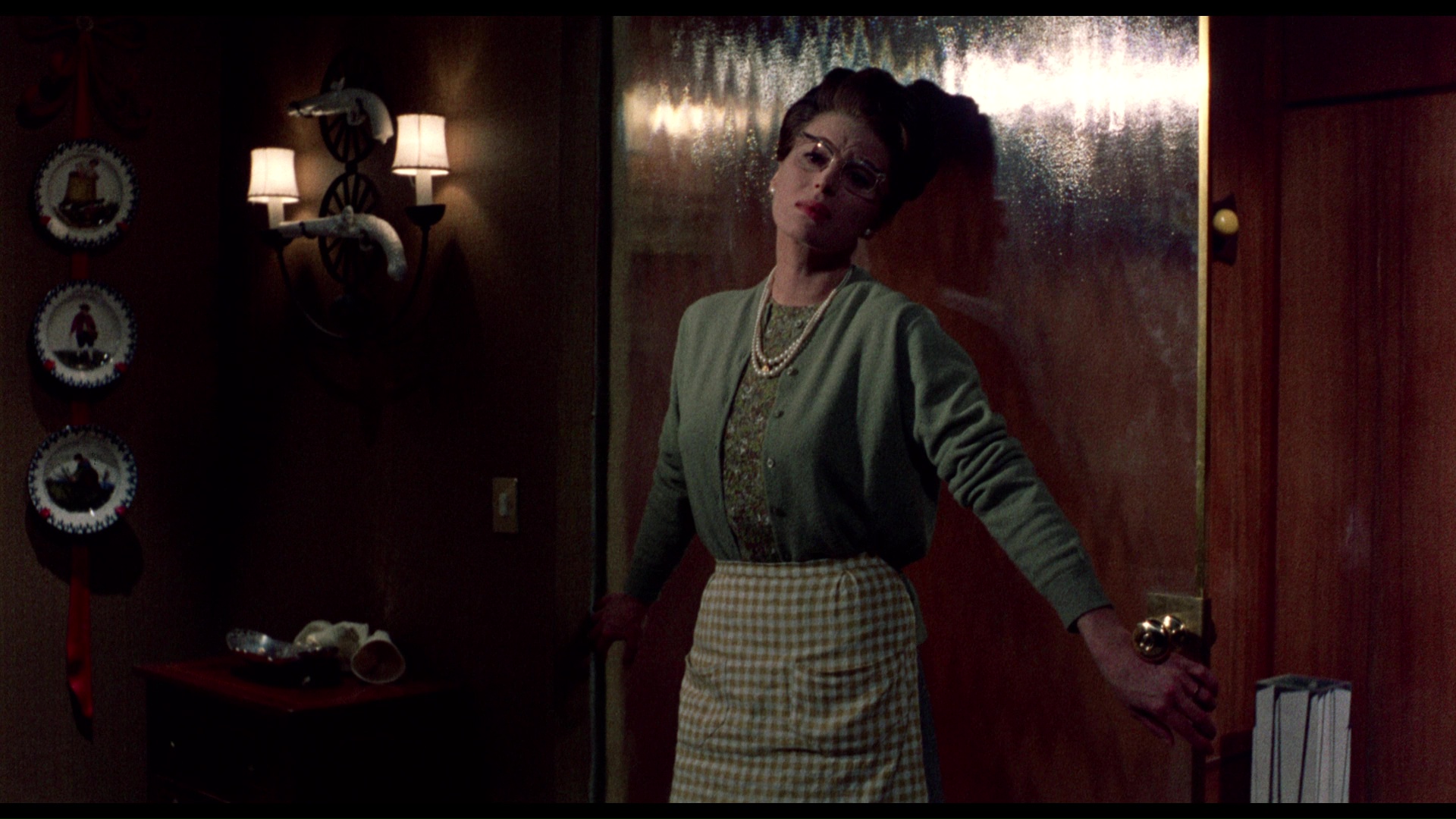 films in the '70s and features a terrific performance by Toto. Another quick, pointless sketch follows in the form of "The Sicilian Belle" from Franco Rossi, a throwaway but incredibly violent little number about a jilted woman (Mangano) whose father goes overboard avenging her heartbreak.
films in the '70s and features a terrific performance by Toto. Another quick, pointless sketch follows in the form of "The Sicilian Belle" from Franco Rossi, a throwaway but incredibly violent little number about a jilted woman (Mangano) whose father goes overboard avenging her heartbreak.
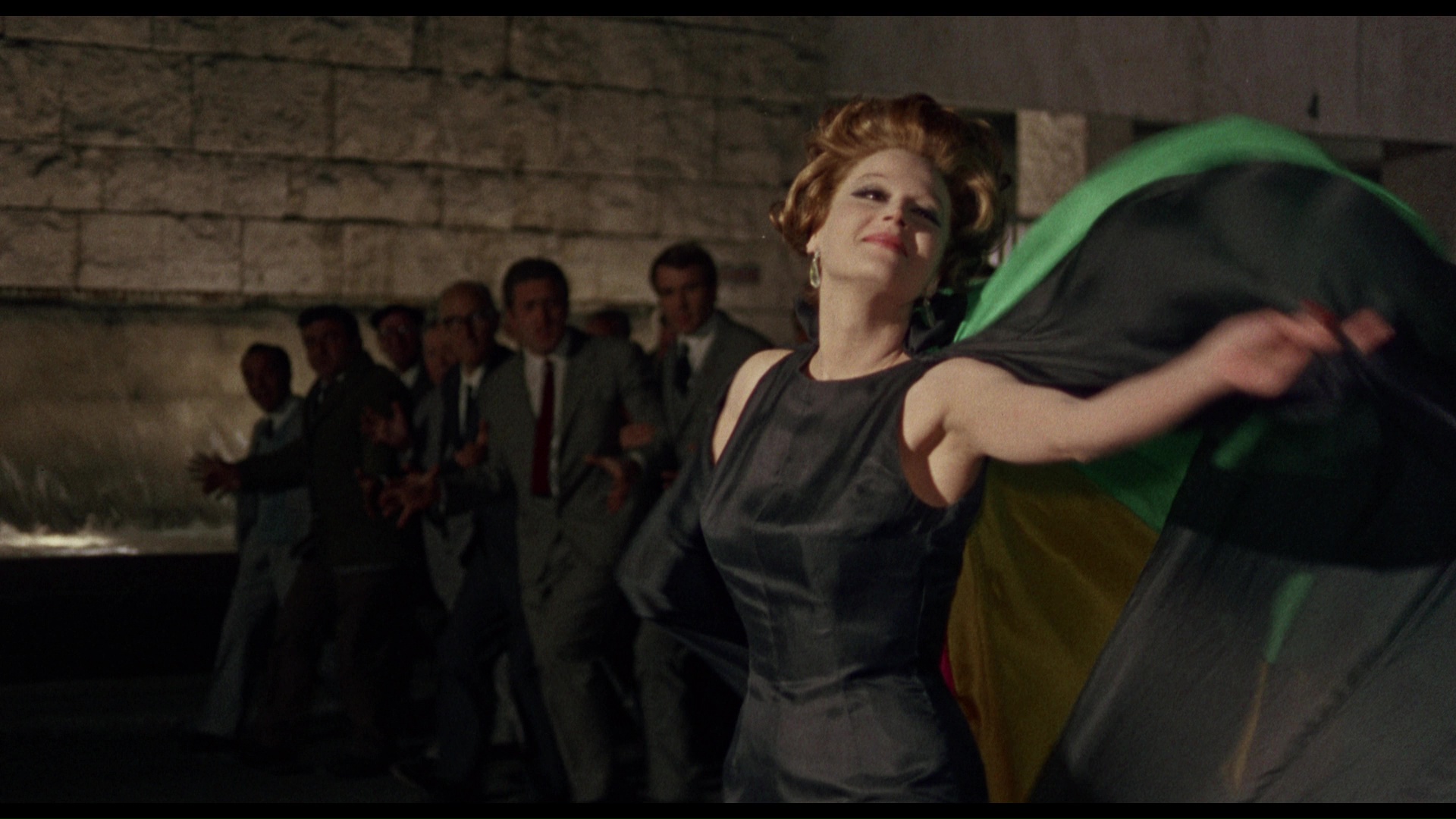 by his work to pay attention to her at home. Soon her psyche is conjuring up wild scenarios in which her husband becomes a savior, cuckold, and villain as she cavorts on a public stage and gets attacked by various superheroes. It's all basically a fun little trifle but, like the better segments before, offers a nice sensory kick if you put your brain on hold while watching it.
by his work to pay attention to her at home. Soon her psyche is conjuring up wild scenarios in which her husband becomes a savior, cuckold, and villain as she cavorts on a public stage and gets attacked by various superheroes. It's all basically a fun little trifle but, like the better segments before, offers a nice sensory kick if you put your brain on hold while watching it. 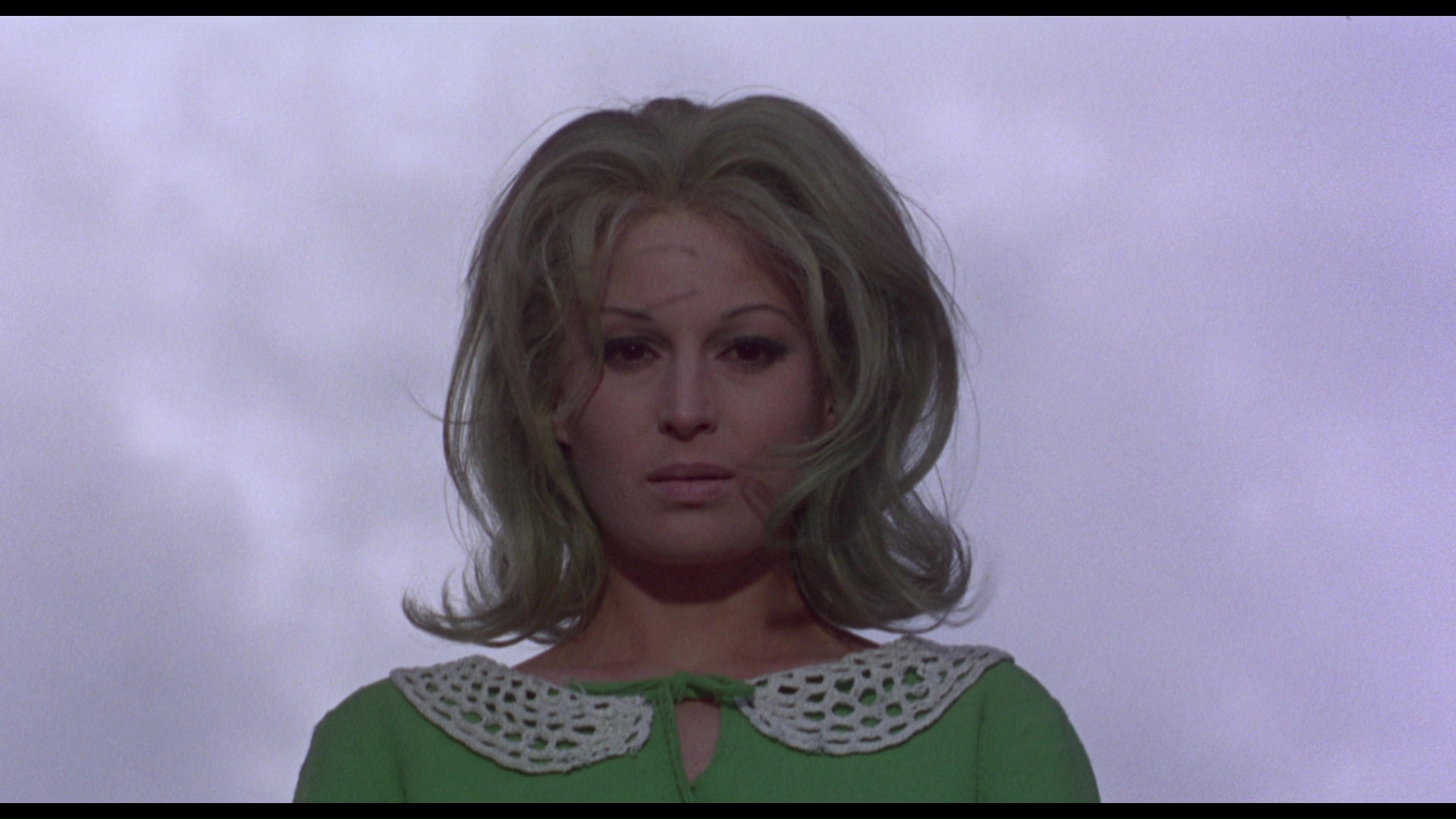 people actually watched. Despite Mangano's best efforts, the real star here is composer Piero Piccioni, who wrote music for four of the five stories (with Ennio Morricone providing some jaunty melodies for the Pasolini tale). This is easily one of the best soundtracks in Piccioni's impressive list of credits, with an insanely catchy main theme that carries through the animated opening credits and most of the Visconti story (with a particularly great "beat" version provided for Mangano's dance scene). He even provides a nutty Italian chorale version of the pop standard "I Will Follow Him," originally written in French in 1961.
people actually watched. Despite Mangano's best efforts, the real star here is composer Piero Piccioni, who wrote music for four of the five stories (with Ennio Morricone providing some jaunty melodies for the Pasolini tale). This is easily one of the best soundtracks in Piccioni's impressive list of credits, with an insanely catchy main theme that carries through the animated opening credits and most of the Visconti story (with a particularly great "beat" version provided for Mangano's dance scene). He even provides a nutty Italian chorale version of the pop standard "I Will Follow Him," originally written in French in 1961.
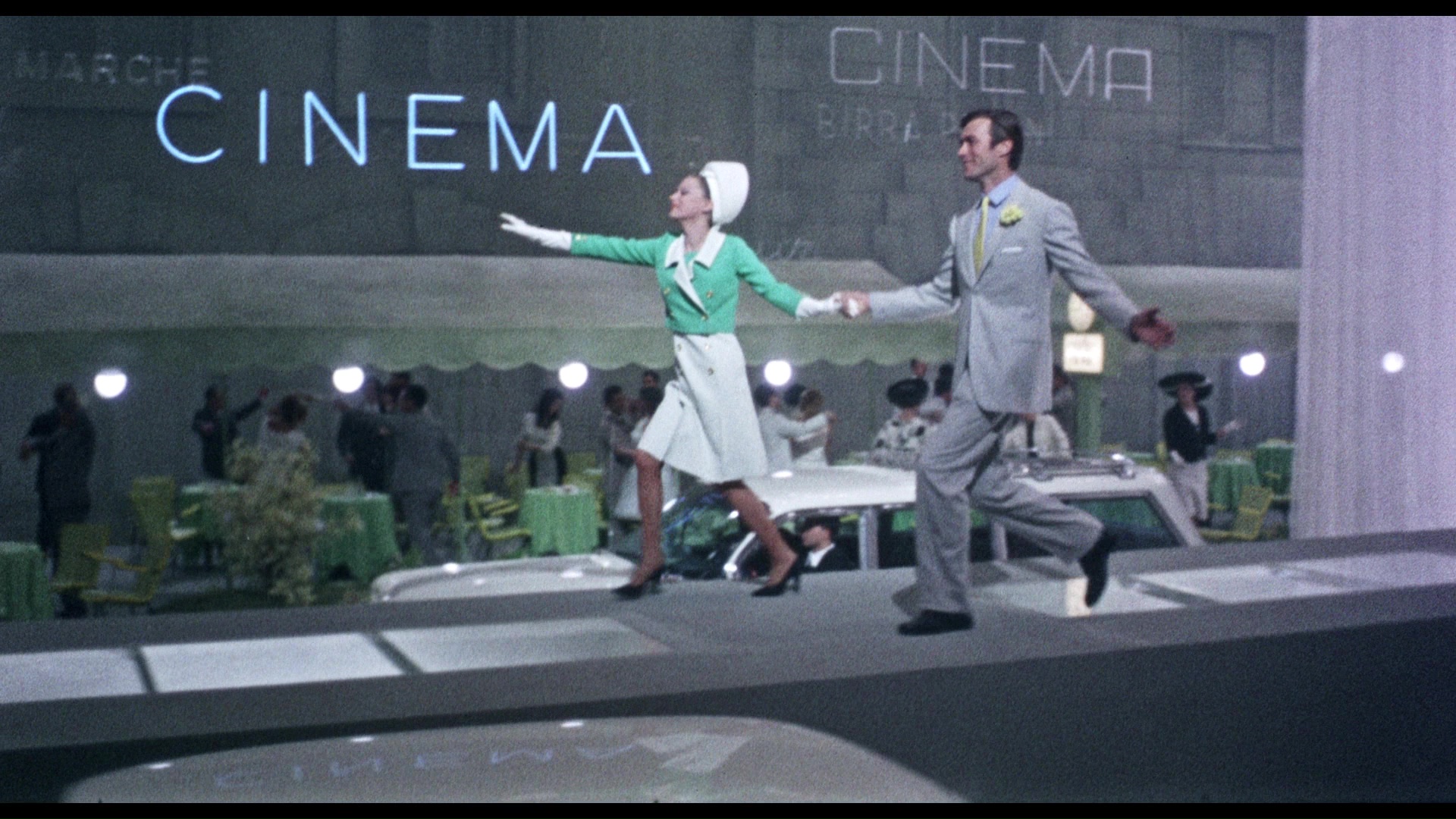 As with a lot of Italian films, the language issue here is a bit tricky. The first four stories were clearly shot in Italian, while the last one has Mangano and Eastwood performing in English. Both the Italian and English-dubbed versions were unsatisfying for different reasons, so it was a pleasant shock in 2011 when MGM unleashed the film's English-friendly video premiere as a made-on-demand DVD release that addressed this exact issue. The whole film can be watched in Italian with optional English subtitles (and finally widescreen, compared to the sorry pan and scan versions seen on TV), or through seamless branching, the De Sica segment can be played in English. The interlaced image quality is a bit worn in spots, obviously, and far from demo quality, but it's still a hefty upgrade over any other version out there. Best of all, this is also the slightly longer Italian cut of the film, clocking in at 111 minutes; original U.S. prints were 105 minutes, while the cable version expanded to 109. There are several noticeable slivers of
As with a lot of Italian films, the language issue here is a bit tricky. The first four stories were clearly shot in Italian, while the last one has Mangano and Eastwood performing in English. Both the Italian and English-dubbed versions were unsatisfying for different reasons, so it was a pleasant shock in 2011 when MGM unleashed the film's English-friendly video premiere as a made-on-demand DVD release that addressed this exact issue. The whole film can be watched in Italian with optional English subtitles (and finally widescreen, compared to the sorry pan and scan versions seen on TV), or through seamless branching, the De Sica segment can be played in English. The interlaced image quality is a bit worn in spots, obviously, and far from demo quality, but it's still a hefty upgrade over any other version out there. Best of all, this is also the slightly longer Italian cut of the film, clocking in at 111 minutes; original U.S. prints were 105 minutes, while the cable version expanded to 109. There are several noticeable slivers of
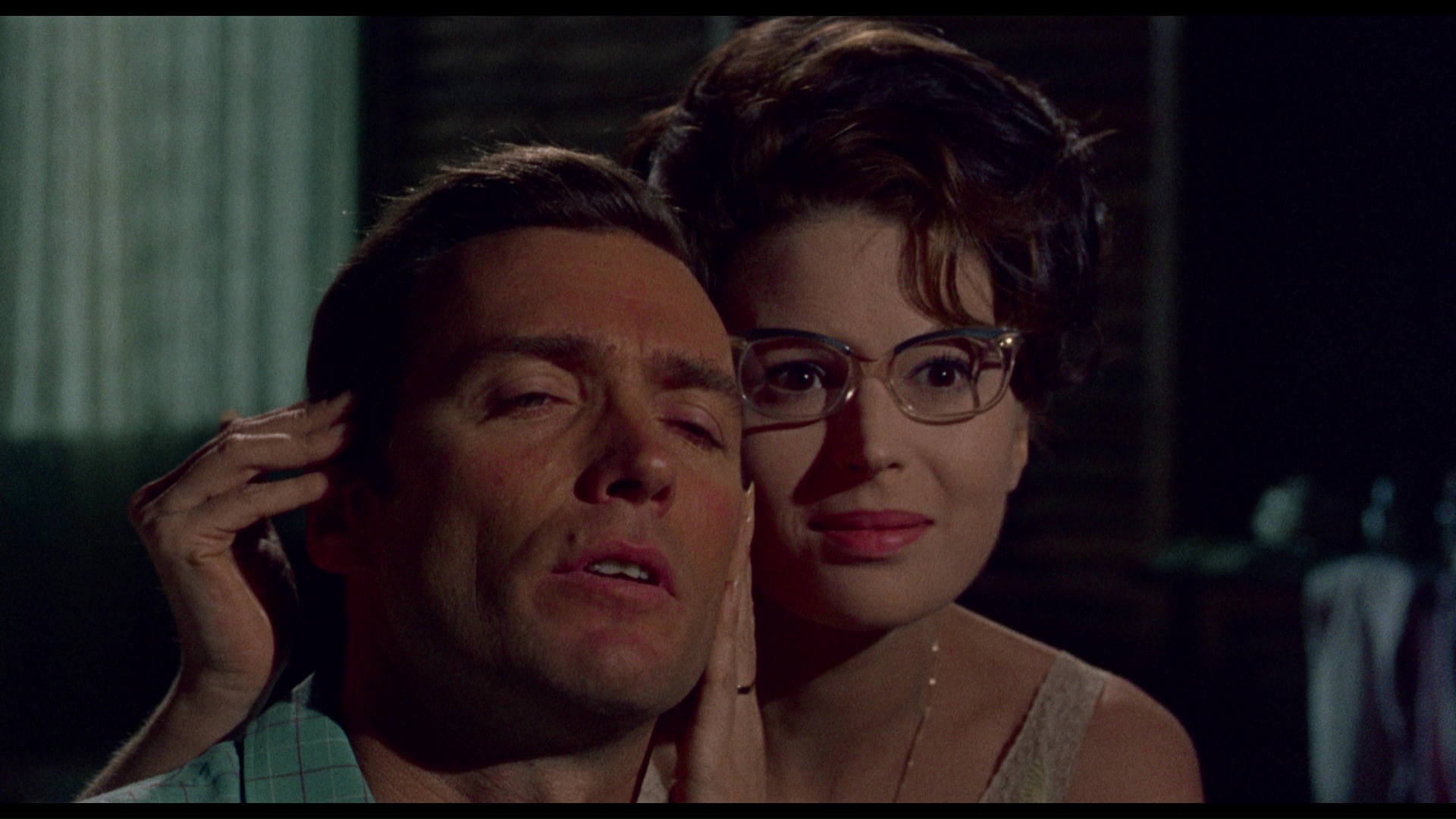 additional footage here and there even during the opening credits, and despite the lack of any extras, it's a surprisingly thorough and worthwhile restoration of a title no one thought would ever get a commercial release at all. Some sources list a running time of up to 121 minutes, though this seems to be taken from the Italian pressbooks which include a traditional intermission after the third story; even the long unavailable Italian VHS didn't run longer.
additional footage here and there even during the opening credits, and despite the lack of any extras, it's a surprisingly thorough and worthwhile restoration of a title no one thought would ever get a commercial release at all. Some sources list a running time of up to 121 minutes, though this seems to be taken from the Italian pressbooks which include a traditional intermission after the third story; even the long unavailable Italian VHS didn't run longer.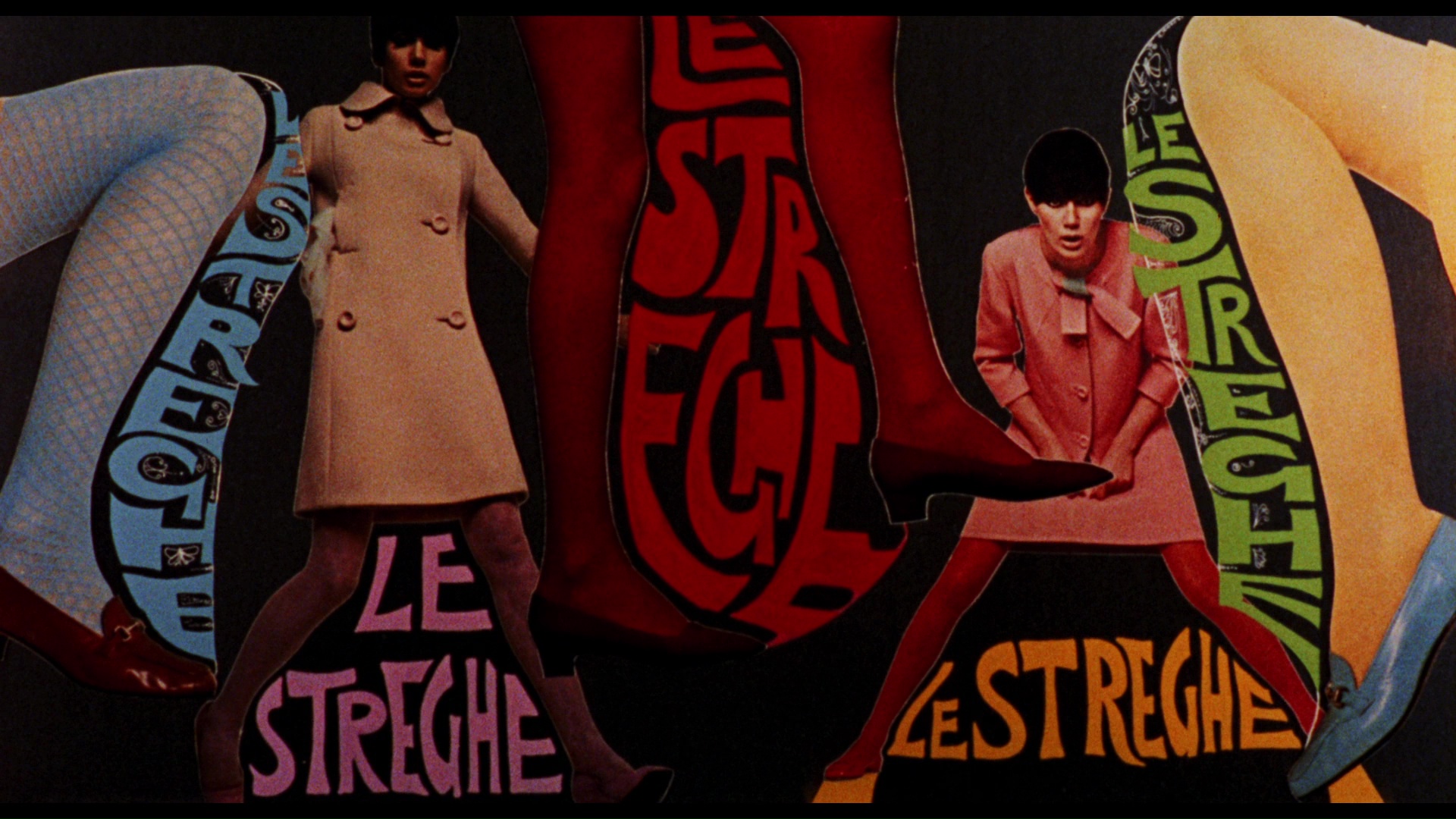 Arrow Video gave the film a welcome bump up to Blu-ray along with a separate DVD edition in both the U.S. and U.K., featuring a new 2K transfer that improves considerably on the older MGM one. Much more detailed and free of debris, it also features richer blacks and nicely saturated colors while retaining the film's natural grain that varies from one story to the next depending on how it was shot. The Visconti segment benefits in particular with its much more graceful handling of the shadowy scenes, while the garish hues of the Pasolini one really pop now. Some of the film is deliberately stylized, such as some diffused or slightly out-of-focus fantasy sequences in the last story, so bear that in mind. The main edition is the full-length Italian one with an Italian DTS-HD MA mono track with optional English subtitles, and it comes with a major new extra: an audio commentary by Tim Lucas. He starts off with a thumbnail sketch of the Italian anthology film before
Arrow Video gave the film a welcome bump up to Blu-ray along with a separate DVD edition in both the U.S. and U.K., featuring a new 2K transfer that improves considerably on the older MGM one. Much more detailed and free of debris, it also features richer blacks and nicely saturated colors while retaining the film's natural grain that varies from one story to the next depending on how it was shot. The Visconti segment benefits in particular with its much more graceful handling of the shadowy scenes, while the garish hues of the Pasolini one really pop now. Some of the film is deliberately stylized, such as some diffused or slightly out-of-focus fantasy sequences in the last story, so bear that in mind. The main edition is the full-length Italian one with an Italian DTS-HD MA mono track with optional English subtitles, and it comes with a major new extra: an audio commentary by Tim Lucas. He starts off with a thumbnail sketch of the Italian anthology film before
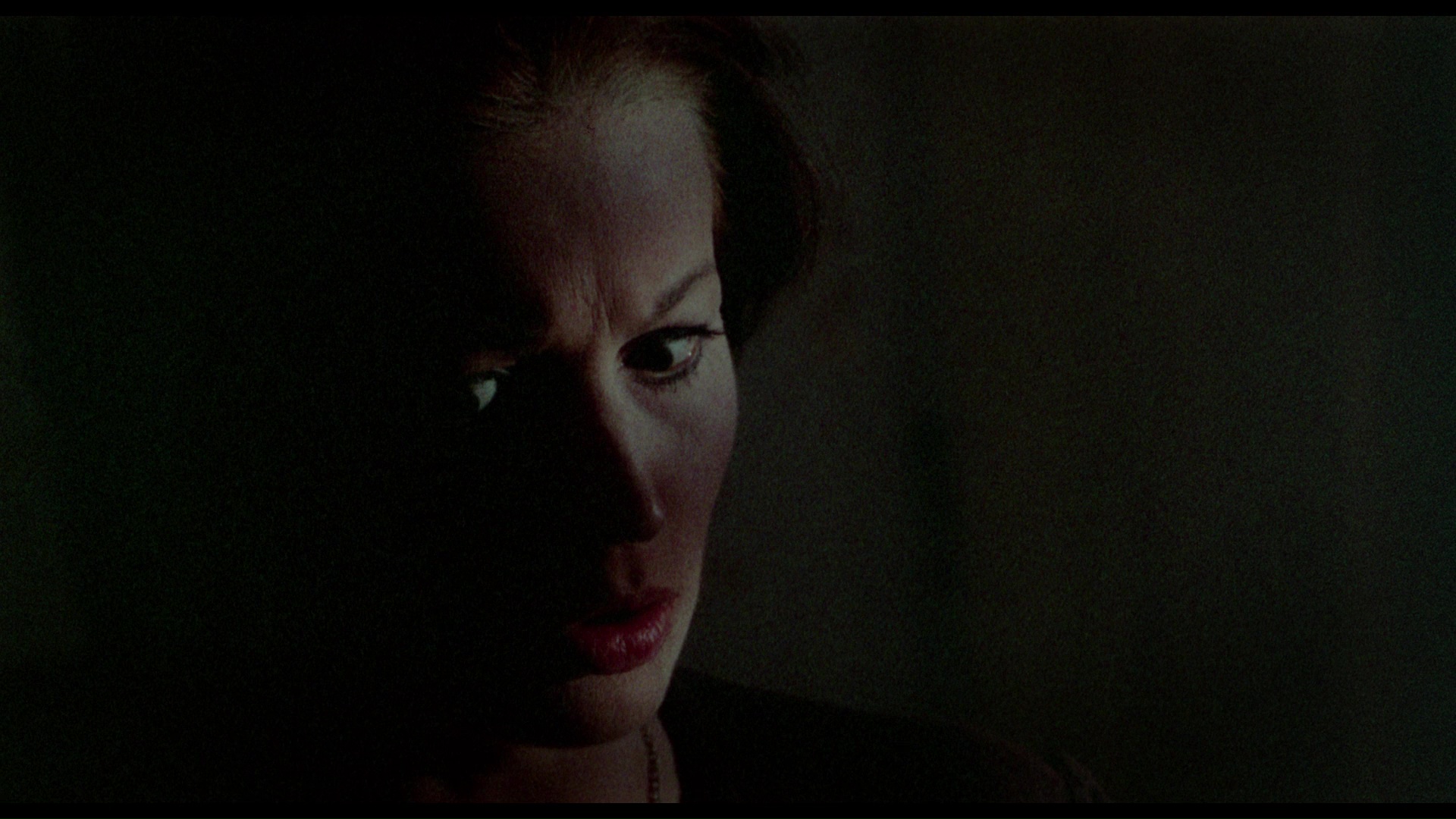 diving into the history of Mangano, her directors, and co-stars, as well as noting the importance of such elements as Ferraris and the feminine finery worn by her characters. As usual it's well researched and observant, hopefully providing a great deal of context that will help appreciating the film. Also included here in its entirety is the shorter English-language version with that awful dubbing for the majority of the stories and the superior English track for the Eastwood/De Sica one. This isn't a cut down of the Italian transfer; instead it's the bona fide English edition with the different English-language text inserts shot at the same time, most notably for the Pasolini segment. Quality of this version is excellent as well. The edition comes packaged with a new cover design by Graham Humphreys and, in the first pressing, a liner notes booklet with essays by Pasquale Iannone and Kat Ellinger.
diving into the history of Mangano, her directors, and co-stars, as well as noting the importance of such elements as Ferraris and the feminine finery worn by her characters. As usual it's well researched and observant, hopefully providing a great deal of context that will help appreciating the film. Also included here in its entirety is the shorter English-language version with that awful dubbing for the majority of the stories and the superior English track for the Eastwood/De Sica one. This isn't a cut down of the Italian transfer; instead it's the bona fide English edition with the different English-language text inserts shot at the same time, most notably for the Pasolini segment. Quality of this version is excellent as well. The edition comes packaged with a new cover design by Graham Humphreys and, in the first pressing, a liner notes booklet with essays by Pasquale Iannone and Kat Ellinger.![]()